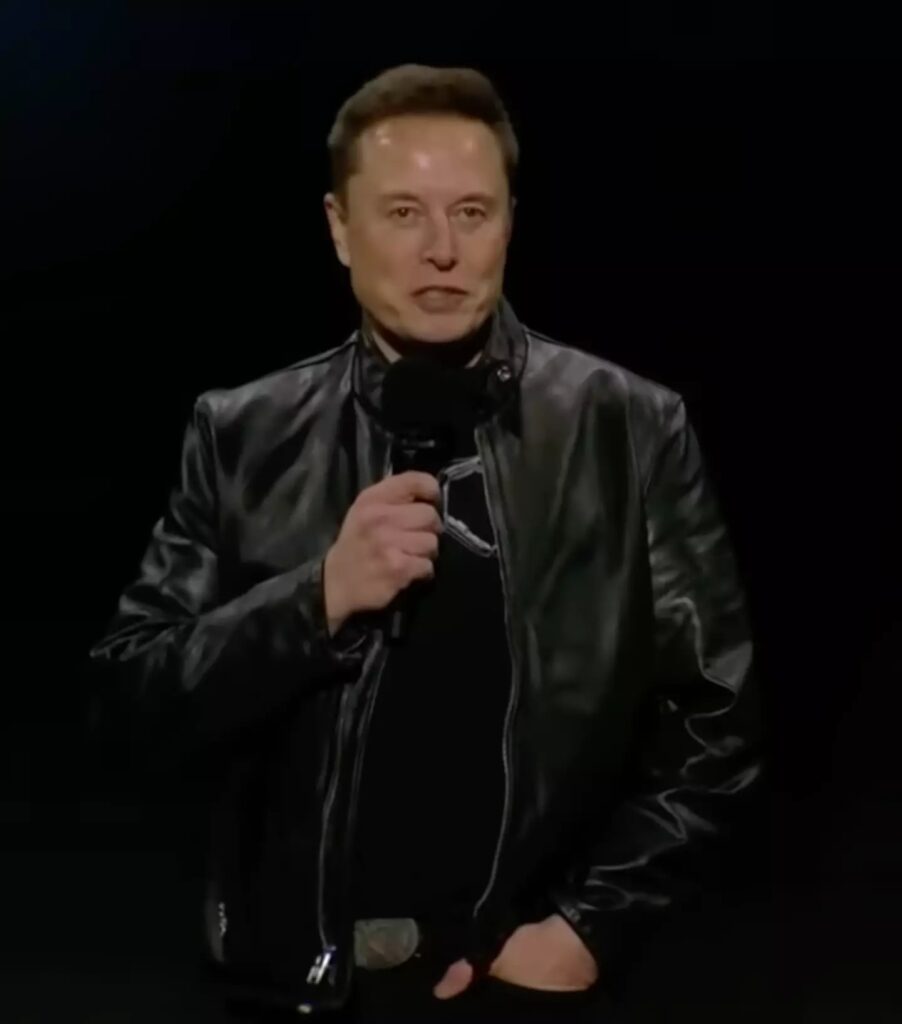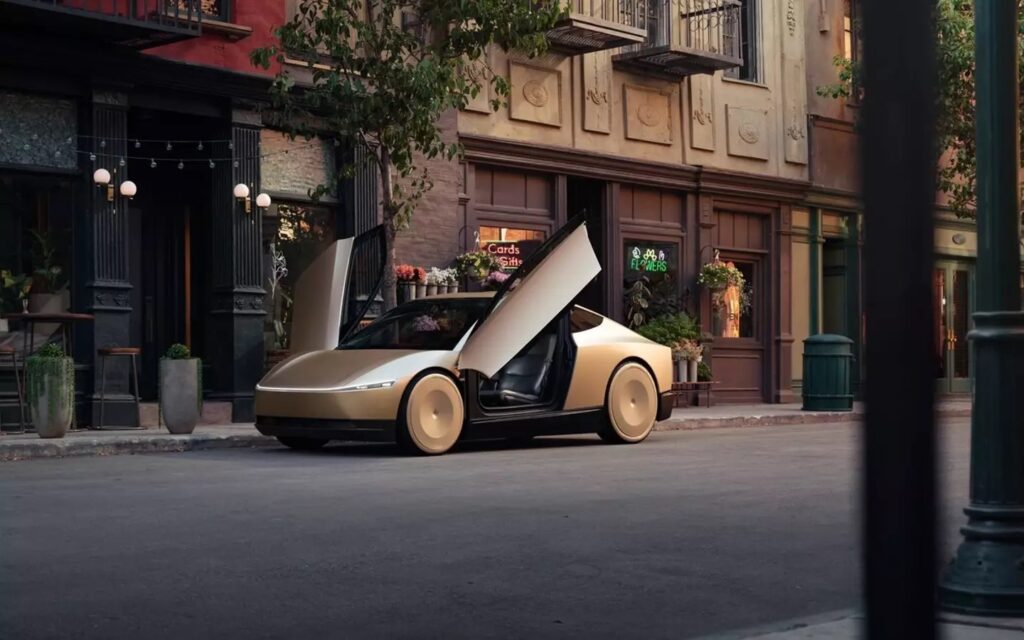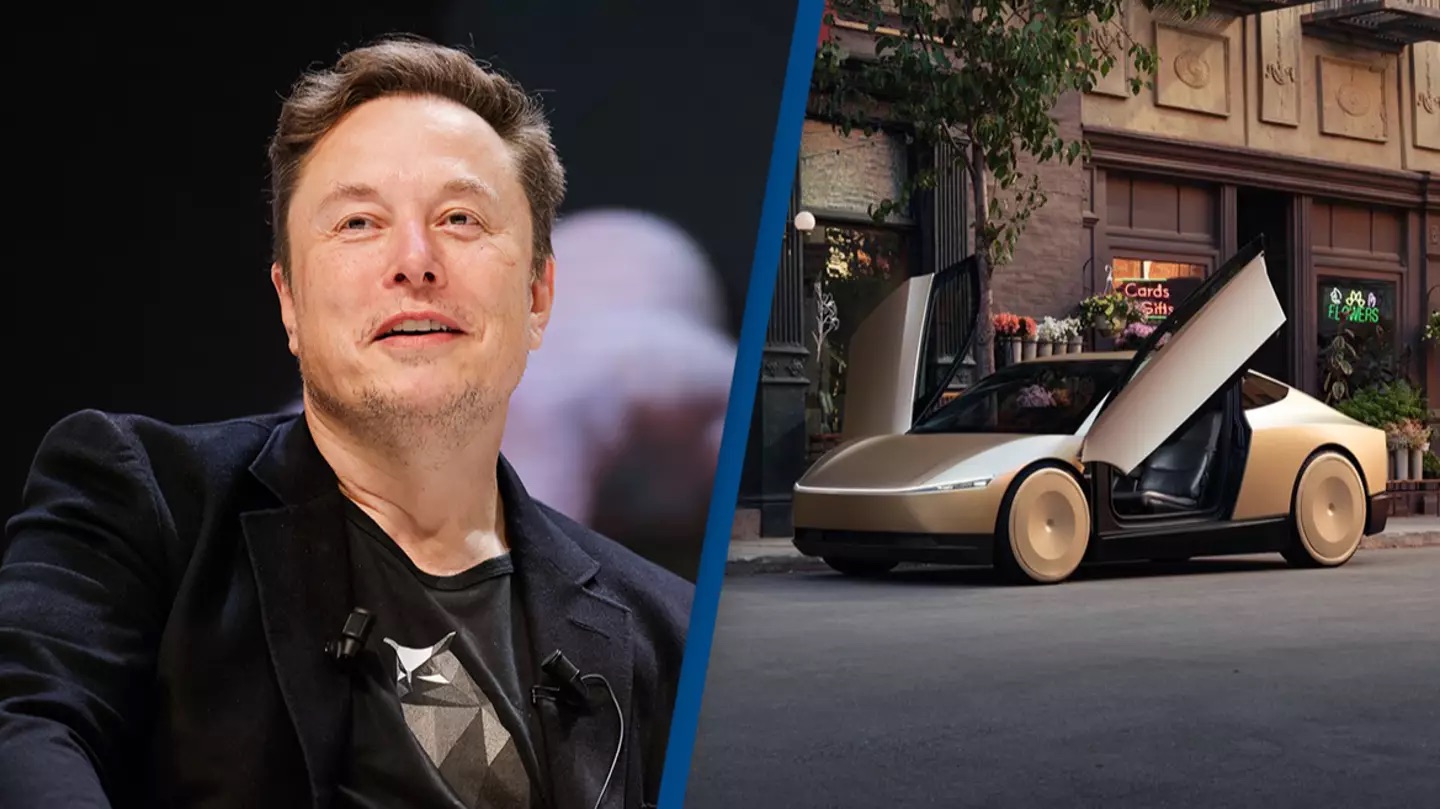When we think about the future, images of towering skyscrapers and self-driving cars often come to mind. While bustling cities are already a reality, driverless taxis may soon be widespread, especially with Elon Musk’s latest efforts.
On Thursday night (October 10), at the We, Robot event in Burbank, California, the tech mogul unveiled Tesla’s self-driving robotaxi, dubbed the Cybercab. Musk also surprised the audience with its expected low price.

The Cybercab, a sleek bronze vehicle with futuristic design features, includes two scissor doors that resemble bird wings. Notably, the interior lacks pedals and a steering wheel.
Musk hinted that Cybercab production could start as early as “before 2027,” though he tempered expectations, acknowledging that his timelines tend to be optimistic. The project has already been delayed from its original August launch due to design modifications.
During the presentation, Musk revealed that the Cybercab could sell for under $30,000 (£23,000), significantly cheaper than one of Tesla’s most affordable models, the base Model 3 Rear-Wheel Drive, which starts at $38,990 (£29,837.88).
Reactions to the Cybercab on social media were mixed. One fan on X commented, “This indeed does look like the future,” while another said, “I would buy the Cybercab for my day car.” However, not everyone was impressed, with one user stating, “The idea of a driverless taxi is cool, but the design makes me never want to be in one. Why can’t it just look like a normal car instead of something from I, Robot?”

Tesla’s robotaxi competitors, such as Google’s Waymo, are already operational in some parts of the US. These AI-driven taxis use machine learning to navigate safely, adapting to real-time traffic changes, and are available 24/7 in areas like San Francisco, Los Angeles, Phoenix, and Austin.
Uber is also expanding its autonomous vehicle fleet, having formed a multi-year partnership with driverless car developer Cruise last August. Meanwhile, Chinese tech giant Baidu plans to grow its robotaxi service, Apollo Go, beyond China.
